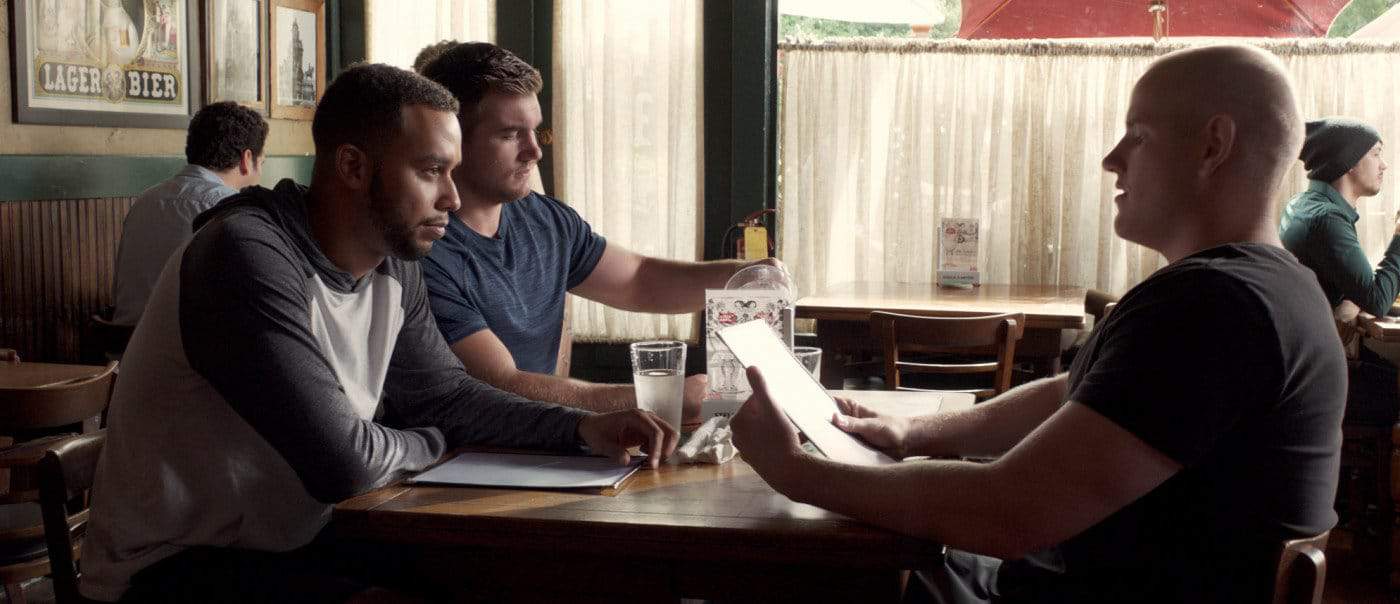
We recommend other movies where heroes play themselves.
Clint Eastwood‘s The 15:17 to Paris depicts the true story of the 2015 Thalys train attack, when a man opened fire during a rail trip from Amsterdam to Paris and was taken down by a few of the passengers on board. Eastwood cast three of the heroes in the incident as themselves in the drama, a decision that’s earning criticism but which isn’t that unusual even outside of documentary films. For this week’s list of Movies to Watch After… I’m highlighting some of the most important and some of the more obscure films throughout history that have real people involved reenacting their own significant deeds.
The Life of Buffalo Bill (1912)
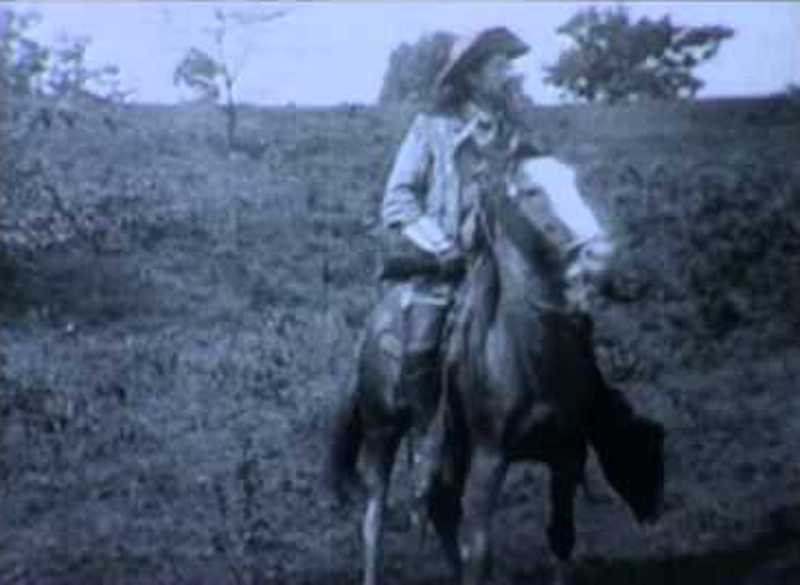 William F. Cody, aka Buffalo Bill, might not be as well-known today if it weren’t for his own proliferation of his own legend. He allowed himself to be fictionalized in novels and he built on his legacy as a Wild West hero in a traveling production featuring stunts, skilled spectacles, and staged re-creations of historical events. Understandably, when motion pictures were invented, Cody made his way to the silver screen with filmed versions of his Buffalo Bill’s Wild West show and other more focused presentations. In this three-reeler, he made the leap to an autobiographical narrative work in which he plays himself during a framing device but allows an actor to portray him as a younger man in reenactments of his life and adventures.
William F. Cody, aka Buffalo Bill, might not be as well-known today if it weren’t for his own proliferation of his own legend. He allowed himself to be fictionalized in novels and he built on his legacy as a Wild West hero in a traveling production featuring stunts, skilled spectacles, and staged re-creations of historical events. Understandably, when motion pictures were invented, Cody made his way to the silver screen with filmed versions of his Buffalo Bill’s Wild West show and other more focused presentations. In this three-reeler, he made the leap to an autobiographical narrative work in which he plays himself during a framing device but allows an actor to portray him as a younger man in reenactments of his life and adventures.
The Life of General Villa (1914)
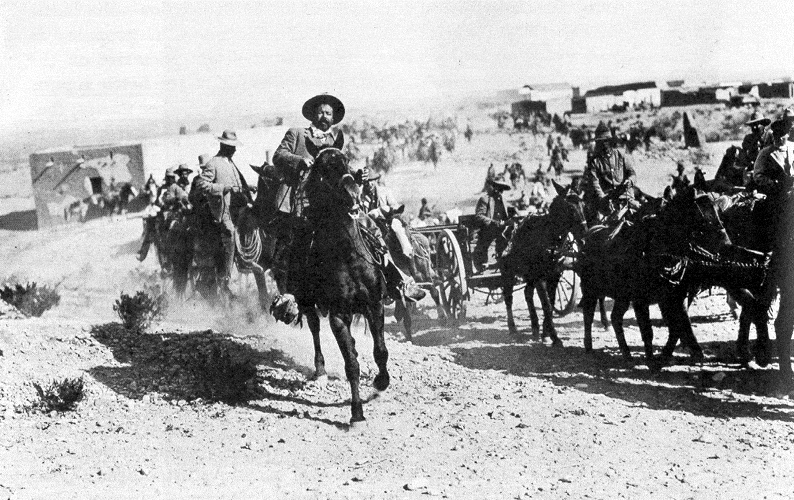 One of the most fascinating docudrama productions of all time, this biographical film starred Mexican Revolution hero Pancho Villa as himself, apparently as part of an effort to fund his military campaign. Directed by Christy Cabanne and Raoul Walsh (who also co-starred) and produced by D.W. Griffith, the feature did involve some actual war newsreel footage alongside staged reenactments. Unfortunately, the film is pretty much entirely lost, save for some fragments and stills, so technically you can’t really watch it now. What you can watch is the 2003 TV movie about its making, And Starring Pancho Villa as Himself, with Antonio Banderas as Villa, Michael McKean as Cabanne, Kyle Chandler as Walsh, and Colm Feore as Griffith.
One of the most fascinating docudrama productions of all time, this biographical film starred Mexican Revolution hero Pancho Villa as himself, apparently as part of an effort to fund his military campaign. Directed by Christy Cabanne and Raoul Walsh (who also co-starred) and produced by D.W. Griffith, the feature did involve some actual war newsreel footage alongside staged reenactments. Unfortunately, the film is pretty much entirely lost, save for some fragments and stills, so technically you can’t really watch it now. What you can watch is the 2003 TV movie about its making, And Starring Pancho Villa as Himself, with Antonio Banderas as Villa, Michael McKean as Cabanne, Kyle Chandler as Walsh, and Colm Feore as Griffith.
Headin’ Home (1920)
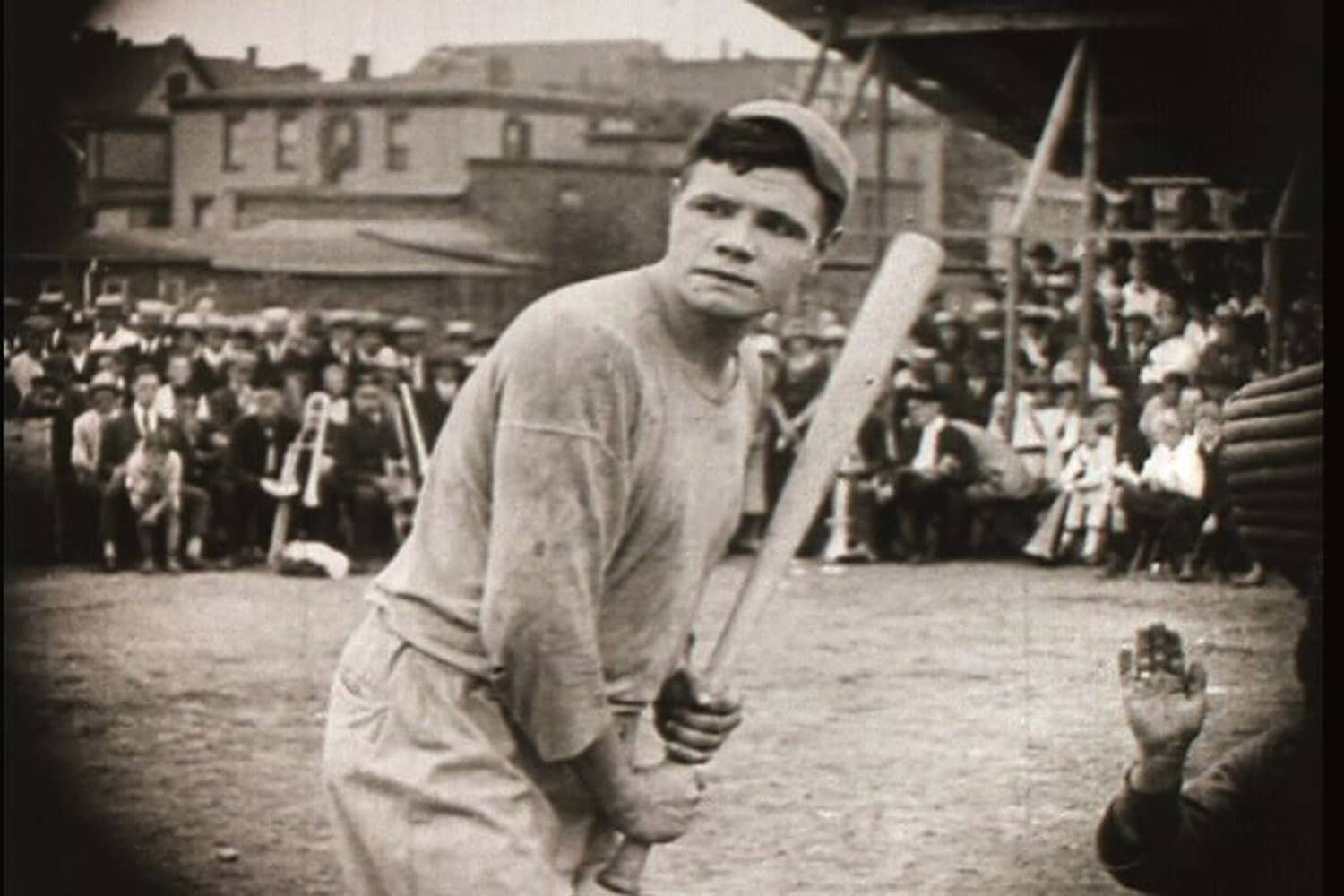 Babe Ruth played himself in a lot of movies, most famously in the Lou Gehrig biopic The Pride of the Yankees. But that was 22 years after his own biopic, released at the end of the Bambino’s first season with New York. Of course, the one-hour feature is mostly fictionalized to create Ruth as a more mythological sports hero on the big screen. Such positive propaganda is normal with the sort of biased biographical works that would involve the real person. While Headin’ Home is not considered the best quality example of athletic autobiographical portrayals in film, there’s also 1950’s The Jackie Robinson Story, starring Robinson as himself similarly way too early in his own career, and 1977’s The Greatest with Muhammad Ali as himself. Interestingly enough, all three figures eventually got bigger biopics with major actors playing the roles.
Babe Ruth played himself in a lot of movies, most famously in the Lou Gehrig biopic The Pride of the Yankees. But that was 22 years after his own biopic, released at the end of the Bambino’s first season with New York. Of course, the one-hour feature is mostly fictionalized to create Ruth as a more mythological sports hero on the big screen. Such positive propaganda is normal with the sort of biased biographical works that would involve the real person. While Headin’ Home is not considered the best quality example of athletic autobiographical portrayals in film, there’s also 1950’s The Jackie Robinson Story, starring Robinson as himself similarly way too early in his own career, and 1977’s The Greatest with Muhammad Ali as himself. Interestingly enough, all three figures eventually got bigger biopics with major actors playing the roles.
Beyond the Line of Duty (1942)
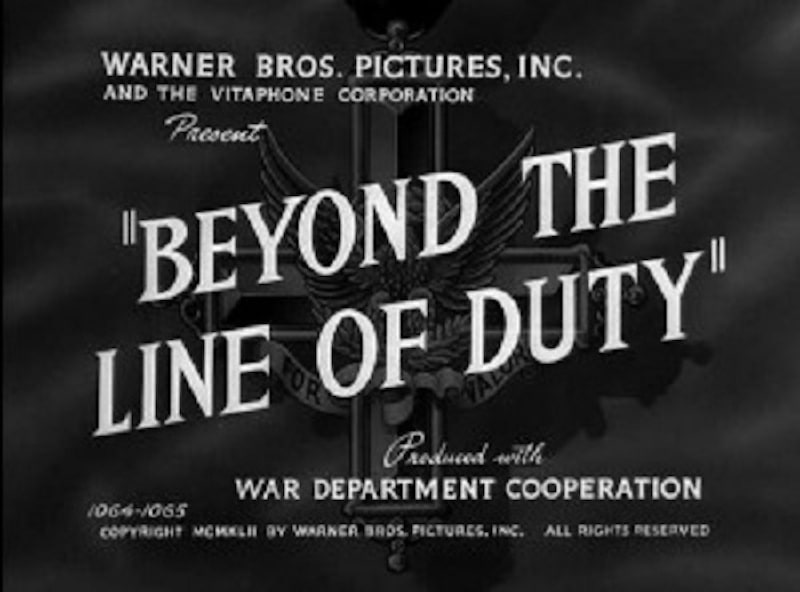 One of the first American heroes of World War II, Captain Hewitt T. Wheless piloted a flying fortress bomber during missions against Japan immediately after Pearl Harbor and survived an attack that left many others wounded or dead. He received medals (including the Distinguished Service Cross), was the focus of one of FDR’s Fireside Chat radio addresses, and became the subject and star of this Oscar-winning short film. Narrated by future president Ronald Reagan and featuring parts of the radio speech by then president Roosevelt, the film was produced for and served as propaganda to encourage enlistment and support in the early days of the war and boost morale for the men joining the fight and thanking the workers building the planes. Wheless plays himself not just during his heroic mission but years earlier when he joined up during peacetime, as well. You can find the film included in home video releases of the James Cagney classic Yankee Doodle Dandy.
One of the first American heroes of World War II, Captain Hewitt T. Wheless piloted a flying fortress bomber during missions against Japan immediately after Pearl Harbor and survived an attack that left many others wounded or dead. He received medals (including the Distinguished Service Cross), was the focus of one of FDR’s Fireside Chat radio addresses, and became the subject and star of this Oscar-winning short film. Narrated by future president Ronald Reagan and featuring parts of the radio speech by then president Roosevelt, the film was produced for and served as propaganda to encourage enlistment and support in the early days of the war and boost morale for the men joining the fight and thanking the workers building the planes. Wheless plays himself not just during his heroic mission but years earlier when he joined up during peacetime, as well. You can find the film included in home video releases of the James Cagney classic Yankee Doodle Dandy.
To Hell and Back (1955)
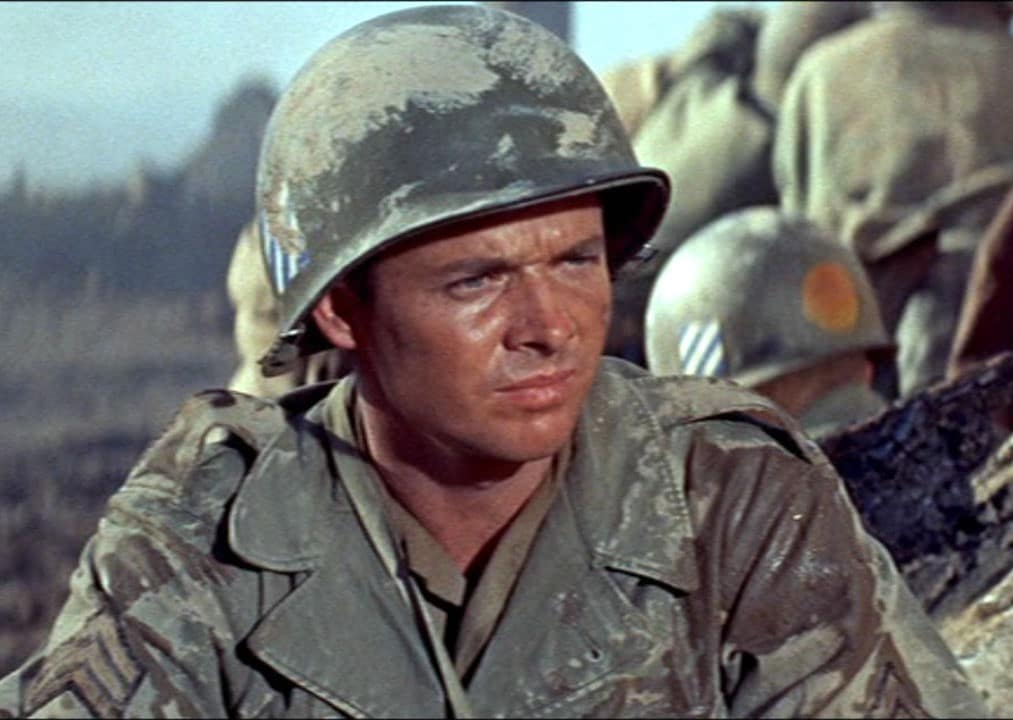 Despite the existence of the Wheless film, To Hell and Back is the movie most cited when people talk about or list movies involving heroes playing themselves. It’s also often wrongly thought of as a World War II propaganda film despite releasing 10 years after the war ended. Audie Murphy, the star of the movie, was also not just a hero plucked from real life to play himself, either. He went to Hollywood following the war — albeit he was recruited because of his fame as a war hero — and had already starred in 15 films, mostly Westerns plus the Civil War-set classic The Red Badge of Courage, before being cast in the adaptation of his own autobiography. It’d be like Adam Driver now making a movie about his time as a Marine, though unlike Murphy he didn’t see any action let alone the sort to result in multiple Purple Hearts and Silver Stars for kicking Nazi butt.
Despite the existence of the Wheless film, To Hell and Back is the movie most cited when people talk about or list movies involving heroes playing themselves. It’s also often wrongly thought of as a World War II propaganda film despite releasing 10 years after the war ended. Audie Murphy, the star of the movie, was also not just a hero plucked from real life to play himself, either. He went to Hollywood following the war — albeit he was recruited because of his fame as a war hero — and had already starred in 15 films, mostly Westerns plus the Civil War-set classic The Red Badge of Courage, before being cast in the adaptation of his own autobiography. It’d be like Adam Driver now making a movie about his time as a Marine, though unlike Murphy he didn’t see any action let alone the sort to result in multiple Purple Hearts and Silver Stars for kicking Nazi butt.
Touching the Void (2003)
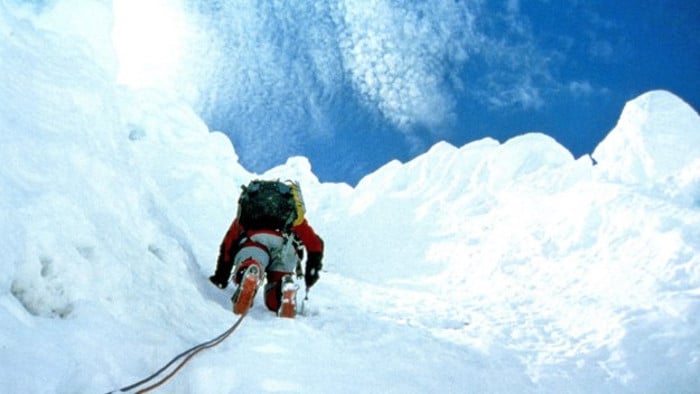
Many documentaries feature reenactments, but few do so as heavily as this hit film about an infamous mountain climbing disaster in the 1980s where one man was forced to leave another for death to save his own life, though both wound up surviving. Director Kevin Macdonald re-created the events both at the real site, Peru’s Siula Grande, and in the French and Swiss Alps. And he actually got the real men involved, Joe Simpson and Simon Yates, to return to the place where they nearly died. It wasn’t fun for them to relive it all, either. Simpson and Yates are portrayed by actors for much of the reenactment material in the film, though initially they were recruited to double as themselves and there are still some scenes of them on screen in the roles doing the difficult climbing stunts.
Inglourious Basterds (2009)
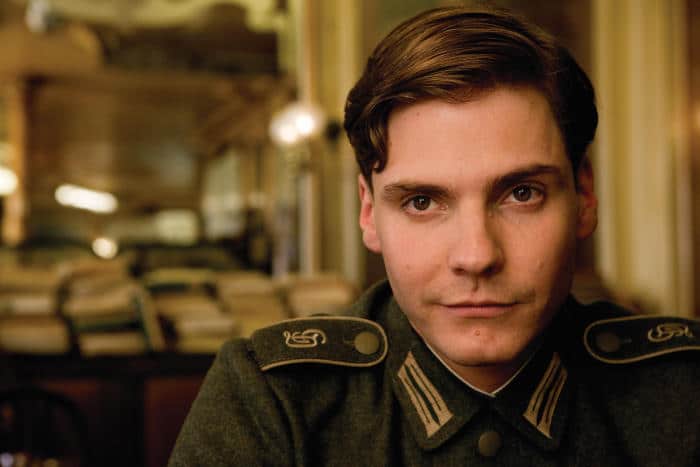 Quentin Tarantino’s alternate World War II history film is pure fiction, but it’s notable for featuring a character who plays himself and reenacts his own military victory in a war movie. Here it’s a Nazi soldier and the movie has been produced as wartime propaganda while World War II is still going on. Despite the timing of his portrayal and the fact that he’s nicknamed on screen “the German Sergeant York” (York was an American World War I hero whose story was turned into a movie not starring himself but released just before the US was forced into World War II), the Fredrick Zoller role in Inglourious Basterds is partly inspired by Audie Murphy (Tarantino says he “kind of meant” for it to recall him), and his movie within the movie, “Nation’s Pride,” by To Hell and Back.
Quentin Tarantino’s alternate World War II history film is pure fiction, but it’s notable for featuring a character who plays himself and reenacts his own military victory in a war movie. Here it’s a Nazi soldier and the movie has been produced as wartime propaganda while World War II is still going on. Despite the timing of his portrayal and the fact that he’s nicknamed on screen “the German Sergeant York” (York was an American World War I hero whose story was turned into a movie not starring himself but released just before the US was forced into World War II), the Fredrick Zoller role in Inglourious Basterds is partly inspired by Audie Murphy (Tarantino says he “kind of meant” for it to recall him), and his movie within the movie, “Nation’s Pride,” by To Hell and Back.
The Act of Killing (2012)
 Heroism can be subjective, obviously, and just as in the case of the fictional Zoller of Inglourious Basterds, men considered by us to be the enemy might be seen as heroes to the other side. In Joshua Oppenheimer, Christine Cynn, and (Anonymous)’s Oscar-nominated The Act of Killing, men who participated in a horrible genocide in Indonesia are viewed as national heroes because they wound up on the winning side of their history. Not unlike Audie Murphy repeating his killings of Nazis or the trio of The 15:17 to Paris re-creating their thwarting of terrorism, only on a certainly more disturbing and despicable level from our (and eventually some of their own) perspective, the mass murderers here are invited to reenact their actions, including strangling deaths and torture, against communist citizens and others deemed enemies of the state.
Heroism can be subjective, obviously, and just as in the case of the fictional Zoller of Inglourious Basterds, men considered by us to be the enemy might be seen as heroes to the other side. In Joshua Oppenheimer, Christine Cynn, and (Anonymous)’s Oscar-nominated The Act of Killing, men who participated in a horrible genocide in Indonesia are viewed as national heroes because they wound up on the winning side of their history. Not unlike Audie Murphy repeating his killings of Nazis or the trio of The 15:17 to Paris re-creating their thwarting of terrorism, only on a certainly more disturbing and despicable level from our (and eventually some of their own) perspective, the mass murderers here are invited to reenact their actions, including strangling deaths and torture, against communist citizens and others deemed enemies of the state.
Related Topics: Movie DNA
